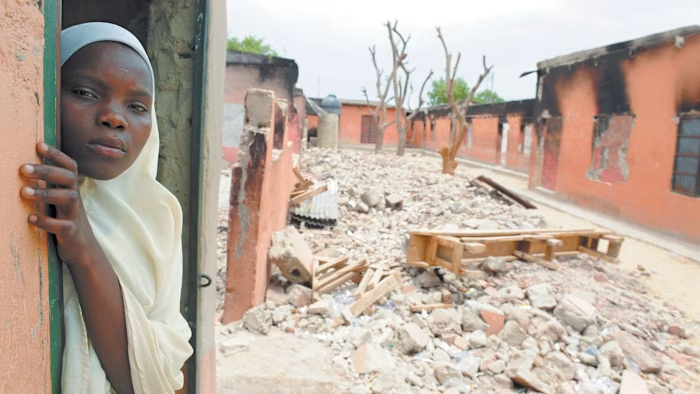News & Politics
Nigeria’s Terrorism Crisis Worsens: The Emergence of Mahmuda and Its Implications
Nigeria’s security has been strained by her longstanding war against terrorist groups such as Boko Haram, its offshoot Ansaru, the Islamic State West Africa Province (ISWAP), and Lakurawa. The country now faces a new threat: the Mahmuda terrorist group. This proliferation of armed factions exacerbates instability, stretching security’s already limited resources and deepening humanitarian crises […]
By
Alex Omenye
9 months ago
Nigeria’s security has been strained by her longstanding war against terrorist groups such as Boko Haram, its offshoot Ansaru, the Islamic State West Africa Province (ISWAP), and Lakurawa. The country now faces a new threat: the Mahmuda terrorist group. This proliferation of armed factions exacerbates instability, stretching security’s already limited resources and deepening humanitarian crises across the country.
The Mahmuda group, also dubbed the “Mallam Group” after its leader, reportedly splintered from Boko Haram, adopts a more moderate ideology. Linked to networks in Benin and Niger, the group has operated stealthily around the Kainji Lake National Park (KLNP) for five years, leveraging the park’s terrain to evade detection. Since 2022, their attacks on rural communities in Kwara and Niger States have escalated, culminating in April 2025 raids that killed 21 people, including vigilantes, and triggered widespread kidnappings.
The Emir of Yashikira, Alhaji Umaru Seriki, echoed community fears, pleading for government intervention. Despite Senate resolutions in 2022 urging military action against KLNP insecurity, responses remain fragmented. While Niger State police confirm joint operations with the military to “dislodge” the group, Kwara State authorities have dismissed reports as “false,” contradicting federal agencies like the National Counter-Terrorism Centre (NCTC), which acknowledges Mahmuda’s presence.
The rise of multiple terrorist groups in Nigeria has created a multifaceted crisis with far-reaching consequences. One immediate consequence is the overextension of the country’s security forces. With multiple factions operating simultaneously—from Boko Haram in the North East to emerging groups like Mahmuda in the North-Central region—the military is forced to fragment its focus, diverting resources from entrenched conflicts to newer flashpoints. This dilution of effort undermines operational effectiveness, leaving gaps that militants exploit to consolidate power.
Compounding these challenges is the devastating humanitarian and economic toll. Repeated attacks on rural communities, such as those in Kwara and Niger States, have triggered mass displacement, disrupted agricultural livelihoods, and deterred investment. Regions already grappling with banditry now face intensified poverty cycles, as terrified villagers abandon farms and markets, destabilizing local economies. The psychological trauma inflicted on civilians, coupled with the erosion of trust in state protection, further entrenches despair and vulnerability.
Beyond Nigeria’s borders, the crisis threatens regional stability. The Mahmuda group’s alleged ties to networks in Benin and Niger countries exemplify how terrorism transcends national boundaries. Such transnational linkages risk exporting violence, straining West Africa’s fragile security architecture, and potentially drawing neighboring states into a wider conflict.
Finally, the environmental ramifications of terrorist activities cannot be overlooked. The occupation of ecologically sensitive zones like the Kainji Lake National Park (KLNP) has dual consequences: it devastates conservation efforts and fuels illicit activities. Terror groups exploit the park’s terrain for cover while engaging in poaching and illegal logging, activities that fund their operations. This environmental degradation threatens biodiversity and deprives local communities of vital natural resources.
Nigeria’s many terrorist groups reflect a crisis of governance as much as security. Without urgent, unified action, these groups like Mahmuda will deepen instability, entrenching cycles of violence that extend far beyond its borders. The time for a coherent strategy to nip these in the bud.

